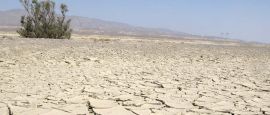Turkmenistan: Doing business & staying in touch
Doing business in Turkmenistan
Business culture in Turkmenistan is formal and hierarchical, with a strong emphasis on respect, protocol, and personal relationships. Decision-making authority is usually concentrated at senior levels, and it is important to identify who holds responsibility early in any business interaction. Initial meetings are often more about establishing trust and credibility than reaching immediate agreements.
Punctuality is expected, particularly for formal meetings, though schedules may change at short notice. Meetings tend to follow a structured format, and it is advisable to dress conservatively in professional settings. Titles and surnames are commonly used, especially when addressing senior figures, and a polite, measured communication style is appreciated.
Business cards are commonly exchanged at the beginning of meetings and should be presented and received with respect. While Turkmen is the official language, Russian remains widely used in business, and interpreters are often required for detailed discussions. English is not widely spoken outside international or government-linked organisations.
Negotiations can be slow, with an emphasis on procedure and official approvals. Written documentation is important, and verbal agreements should always be followed up in writing. Patience and flexibility are essential, as administrative processes can take time and may involve multiple levels of authorisation.
Gift-giving is not a central part of business culture and should be approached with caution. If a gift is offered, it should be modest and appropriate, and never presented in a way that could be perceived as an inducement. Understanding and respecting local protocols is key to building successful long-term business relationships in Turkmenistan.
The economy of Turkmenistan is heavily driven by its natural resources, with natural gas forming the backbone of state revenue and export earnings. The country holds some of the world's largest proven gas reserves, and energy production plays a central role in shaping economic policy, infrastructure development, and foreign trade.
The state maintains a strong presence across most sectors of the economy, with government control particularly pronounced in energy, transport, construction, and major industries. Large-scale public projects, especially in and around the capital, have been a visible feature of economic activity for many years, reflecting a development model led primarily by state investment.
Agriculture remains an important sector, employing a significant share of the population. Cotton and wheat are the main crops, supported by extensive irrigation systems, while livestock farming also contributes to rural livelihoods. Agricultural production is closely managed, with state targets and controls influencing output.
Turkmenistan's economy is relatively closed, with limited private-sector participation and restricted access for foreign investors. Trade is concentrated with a small number of partners, particularly in Asia, where natural gas exports are a key component of economic relations. Currency controls and a managed exchange system continue to shape the business environment.
Machinery and equipment, vehicles, food products, consumer goods, and construction materials.
Keeping in Touch in Turkmenistan
Mobile phone coverage in Turkmenistan is available in cities and along major transport routes, but connectivity can be limited and unreliable outside urban areas. Remote regions, desert areas, and border zones may have little or no signal, so visitors should not rely on mobile coverage when travelling long distances.
TM CELL (Altyn Asyr) is the main mobile network operators, and visitors can purchase local SIM cards from the main TM CELL office in Ashgabat, though availability may be restricted and passport registration is required.
Please beware that mobile internet access is limited and heavily regulated. Popular messaging apps and websites may be blocked or function intermittently, and internet speeds are generally slow even on mobile networks. Visitors who rely heavily on online services should plan accordingly.
Wi-Fi access in Turkmenistan is limited and can be slow by international standards. Most hotels in Ashgabat offer Wi-Fi, though connections are often restricted to public areas such as lobbies rather than guest rooms. Speeds can be inconsistent, and access may require payment or time limits, even in higher-end hotels.
Outside major hotels, Wi-Fi availability is sparse. Public Wi-Fi hotspots are rare, and cafés or restaurants generally do not provide free internet access. Even when Wi-Fi is available, certain websites, apps, and services may be blocked or load intermittently due to content controls.
Visitors are advised to plan for limited connectivity by downloading offline maps, travel documents, and essential apps before arrival. Those who require reliable or high-speed internet for work or communication should be prepared for significant constraints during their stay.
The media landscape in Turkmenistan is tightly controlled, with all major newspapers, television channels, and radio stations state-owned or state-aligned. Content focuses heavily on official news, government activities, and cultural programming, with little independent reporting or foreign media presence.
Access to international news websites and foreign media outlets is often restricted or blocked online. Satellite television may be available in some hotels, but channel selection can be limited. Printed foreign newspapers and magazines are rarely available.
Visitors should be mindful when discussing political topics in public or online, as media and internet activity are closely monitored. Sharing or accessing sensitive content may attract unwanted attention. For practical purposes, travellers should rely on international news sources accessed before arrival or via secure connections outside the country.








 You know where
You know where